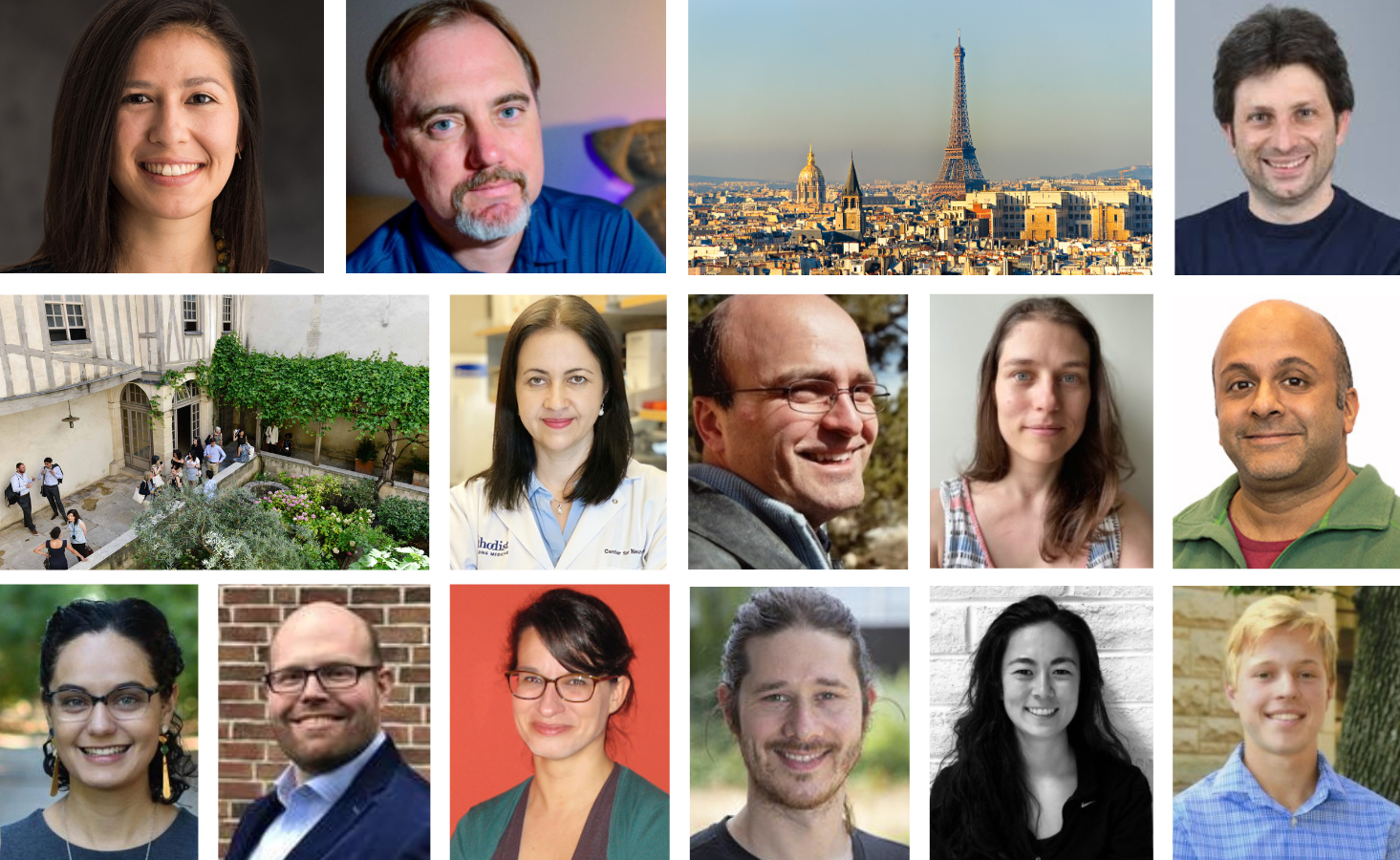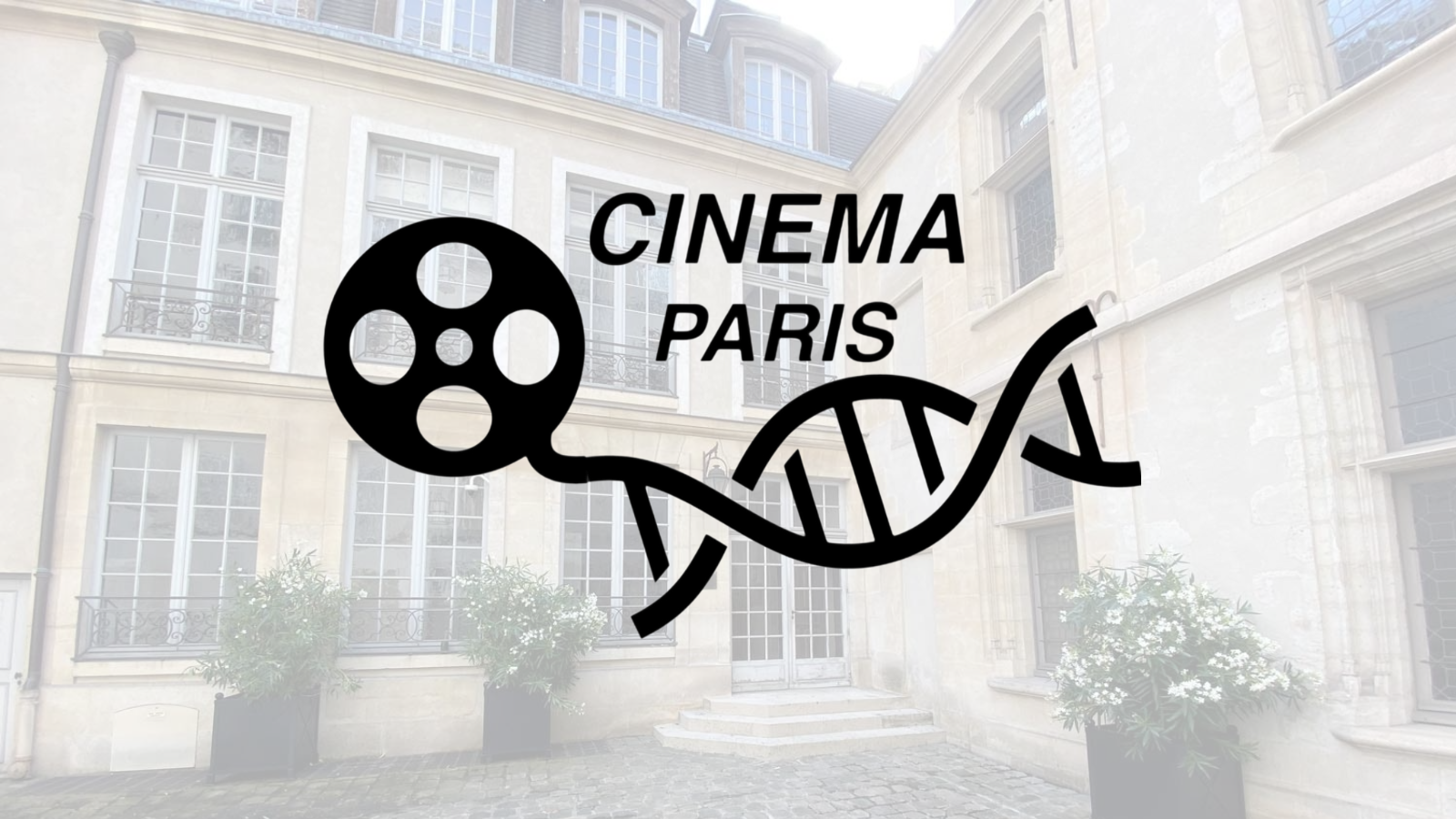This summer in Paris, Rice University researchers will bring together experts from around the world to discuss best practices and computational tools for detecting pathogens from clinical and environmental samples that pose a threat to human and environmental health.
Hosted by the Rice Global Paris Center, these scientists will gather at the Learning Planet Institute as instructors and invited speakers for a seven-day workshop on clinical and environmental metagenome analysis. They aim to share their expertise and provide hands-on experience to participants working to become the next generation of leaders in their field.
CINEMA Paris — a Workshop on Clinical and Environmental Metagenome Analysis (CINEMA) — is co-organized by Rice University course directors Todd Treangen, and Assistant Professor in the Department of Computer Science and Lauren Stadler, Assistant Professor in the Department of Civil and Environmental Engineering.
“It's exciting to feature so many distinguished scientists that are at the forefront of computational tool development and metagenomic data analysis,” said Treangen.
Stadler added, “This amazing lineup of instructors and invited speakers are world-class leaders in analyzing metagenomic data and applying the knowledge gained to protect human and environmental health.”
“I haven't seen many workshops focus both on the clinical and environmental side,” said Treangen. “So one goal of this workshop is to bring perspective from all sides – the computational and monitoring sides as well as the health outcomes and impact side. We’ll have representative scientists, instructors and speakers who really fuse all this together, getting into the key computational tools, approaches and methods, and lab techniques.”
The workshop is designed for graduate students, postdoctoral fellows, and investigators from diverse backgrounds and biological interests. This opportunity will provide a foundation of how to effectively utilize current metagenomic sequencing technologies in order to answer specific research questions.
“This is the inaugural year of the workshop and the Rice Global Paris Center, and we hope to use it as a means to strengthen partnerships and collaboration between Rice and European colleagues,” said Stadler. Treangen and Stadler’s goal of increasing Rice’s collaboration and visibility within Europe pairs perfectly with the Rice Paris Center’s global perspective and their commitment to path-breaking research and unsurpassed teaching.
“I'm thankful to have the support of the Rice Global Paris Center for this is a very unique outreach and engagement opportunity,” said Treangen in regard to his original planning for the workshop. “I did part of my postdoctoral research at the Institut Pasteur in Paris, so when I heard about the Rice Paris Center, I thought this was a great opportunity to reconnect with previous collaborators and mentors, celebrate this new center in Paris, and bring awareness to the research we’re doing.”
“Rice Global Paris (RGP) has a highly varied program of academic events planned for its inaugural year, reflecting the range and excellence of the research being done at Rice University,” said Garry White, the Administrative Director for the center. “We are delighted to support the CINEMA workshop as it aligns with our key mission of building transatlantic relationships and networks for Rice while fostering exchange and learning, and creating opportunities for young scholars.”
“It not only offers an opportunity for Rice grad students to discover firsthand the work of European researchers, but for French – or European – graduates and postdocs to connect with Rice. This summer’s workshop is a first step in a project that will continue to grow in coming years and give rise to future events at RGP.”
Instructors and invited speakers will join the workshop from across Europe, including not only France but also Germany, England and Italy as well as the United States.

Notably, Nicola Segata from the University of Trento in Italy and the European Institute of Oncology in Milan will give the keynote talk, “Large-scale strain-level computational metagenomics of the human microbiome.” Segata Lab employs experimental metagenomic tools and novel computational approaches to study the diversity of the microbiome across conditions and populations and its role in human diseases.
Additional invited speakers include: Sonia Villapol Salgado, Houston Methodist Research Institute (USA); Eduardo Rocha, Institut Pasteur (France); Lucie Bittner, Sorbonne Université (France); and Zamin Iqbal, EMBL-European Bioinformatics Institute (UK).
Treangen and Stadler will be joined by four other course instructors: Jeseth Delgado Vela, Howard University (USA); Sara Vieira-Silva, University Medical Center, Johannes Gutenberg University Mainz (Germany); Alexander Dilthey, Institute of Medical Microbiology, University Hospital of Dusseldorf (Germany); and Joshua Quick, University of Birmingham (UK).
During the course, instructors will define the complete microbiome analysis pipeline, discussing the pros and cons of decisions made in the design process. Workshop participants will get individualized assistance on how to accurately sample, sequence, and characterize microbiomes using quantitative as well as qualitative computational approaches.
"We want to bridge the gap between the users and developers of metagenomic sequencing software,” said CINEMA TA and Rice Computer Science PhD student Kristen Curry. “Students who attend will get hands-on experience exploring novel technologies and opportunities to ask questions specific to their research." Curry is also a member of the Treangen Lab. She’ll be joined as a TA by Rice undergraduate and Stadler Lab Research Group member Ryan Doughty.
“On the last day, participants will get a chance to analyze their own data sets,” said Treangen. “Over the course of a week, someone who was just learning the ropes will get a boot camp of sorts that is also really focused on taking home actual insights and information in terms of having a much better sense of how to analyze, collect or prepare samples and seeing the whole view of what's possible.”
Providing this holistic view of all of the parts of the process and providing attendees with the practical knowledge of how to do the computational analysis can help them avoid push button informatics, which Treangen warns against. “It's much more nuanced than that,” said Treangen. He urges the community to really understand how a computational tool works – how you use it to analyze data and then how to interpret the output. “The more of the community we can train and make aware of the effects of sources of bias, parameter selection, and computational tool selection, the better,” he said.
“The key educational mission, by the end of the seven-day course, is for participants to understand the strengths and limitations of clinical, environmental, and microbiome analysis including everything end-to-end – from sample collection and processing all the way through to computational analysis and interpretation of findings.” said Treangen. “The participants by the end of CINEMA will be able to identify and discuss limitations of the state-of-the-art methods at any point in the process.”
“And of course, networking and engagement with the clinical, environmental, microbiome communities!” he added.
For those interested in applying or learning more, specific topics will include: acquisition of next-generation sequencing data; amplicon and whole-genome metagenomic reads processing; assembly and annotation of sequences; and statistical models for microbiome analysis.
The workshop will be held July 3rd to July 10th in the historic Marais district in the heart of Paris. Tuition for the 7-day workshop is now free but with very limited availability.
Accommodation is not included; however, the CINEMA organizers will provide all registered participants with a detailed list of Paris housing options during the workshop dates.
Applications are due Friday, April 28, 2023. For additional details or to apply, please see the event webpage.

